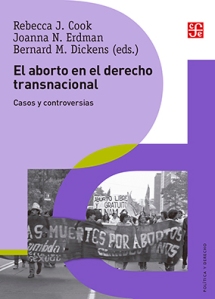Many thanks to Benson Chakaya, a D.Phil Candidate and M.Phil Graduate in the LL.M./M.Phil (Sexual & Reproductive Rights in Africa) degree program at the Centre for Human Rights, Faculty of Law, University of Pretoria. He also serves as National Coordinator for Right Here Right Now Kenya hosted by the Family Health Options Kenya and formerly worked with the Network of African National Human Rights Institutions. His full case summary and comment has been added to the online update of Legal Grounds III: Reproductive and Sexual Rights in Sub-Saharan African Courts.
We also thank Bernard Dickens, Professor Emeritus of Health Law and Policy at the University of Toronto, co-editor and author of Abortion Law in Transnational Perspective: Cases and Controversies (2014), who provided a concise overview of this important decision:
Federation of Women Lawyers (Fida – Kenya) & 3 others v Attorney General & 2 others [2019] eKLR, Petition No. 266 of 2015, Decision of June 12, 2019. (High Court of Kenya at Nairobi, Constitutional and Human Rights Division)
Decision online. Case Comment by Benson Chakaya (Download PDF).
This decision followed the death from consequences of unsafe abortion of a 14-year-old rape victim. The Federation of Women Lawyers and other petitioners challenged the constitutionality of decisions of the Director of Medical Services (DMS) of the Ministry of Health, who was also Registrar of the Kenya Medical Practitioners and Dentists Board regulating medical practice and institutions, to withdraw the Ministry’s 2012 Standards and Guidelines for Reducing Morbidity and Mortality from Unsafe Abortion in Kenya, and National Training Curriculum for the Management of Unintended, Risky and Unplanned Pregnancy.
The DMS had justified these withdrawals on the claim that “the only law in force with respect to abortion is the Penal Code” (para. 366), which provides in section 158 that anyone who “with intent to procure the miscarriage of a woman…unlawfully administers to her or causes her to take any poison or other noxious thing, or uses any force of any kind, or uses any other means whatever, is guilty of a felony…”. The DMS claimed that it was unlawful to set standards and training for unlawful procedures, and warned that offenders faced legal and professional disciplinary sanctions. The DMS cited in support Article 26(4) of the Kenyan Constitution, that “Abortion is not permitted unless, in the opinion of a trained health professional, there is need for emergency treatment, or the life or health of the mother is in danger, or if permitted by any other written law”.
However, the Court rejected DMS and other respondents’ restrictive arguments that “trained health professional” meant only a registered physician, that “health” meant only physical health, and their disregard of other written law. The Article 26(4) exception was interpreted liberally to accommodate midwives, nurses and other trained health service providers, and psychological and mental health indications for abortion. The Court widely reviewed U.S., U.K. and Canadian jurisprudence and international human rights treaties adopted by Kenya, including the African Charter on Human and Peoples’ Rights on the Rights of Women in Africa (the Maputo Protocol), to nullify the DMS withdrawals as arbitrary, illegal and unconstitutional, and declare abortion of pregnancy resulting from rape or defilement that “poses a danger to the life or the health (physical, mental and social well-being)” of the victim to fall within the exception provided by Article 26(4) of the Constitution. The respondents were ordered to pay Ksh.3,000,000 (about US $27,445) “for the physical, psychological, emotional and mental anguish, stress, pain, suffering and death of [the rape victim] occasioned by respondents violation “of her constitutional rights to the required standard of indicated trained medical care.” (para. 415).
The full decision (69 pages) is online here.
Case summary (9 pages) by Benson Chakaya can be downloaded here (PDF)
RELEVANT RESOURCE:
Legal Grounds III: Reproductive and Sexual Health in Sub-Saharan African Courts contains summaries and comments on 60+ court decisions, 2008-present
Online edition with updates and links to decisions.
Published books – free PDF download: Legal Grounds I (2005), Legal Grounds II (2008), Legal Grounds III (2017).
______________
Compiled by: the International Reproductive and Sexual Health Law Program, reprohealth*law at utoronto.ca. See Program website for our Publications, Research resources, and Reprohealthlaw Commentaries Series. TO JOIN THE REPROHEALTHLAW BLOG: enter your email address in the upper right corner of our blog, then check your email to confirm the subscription.




